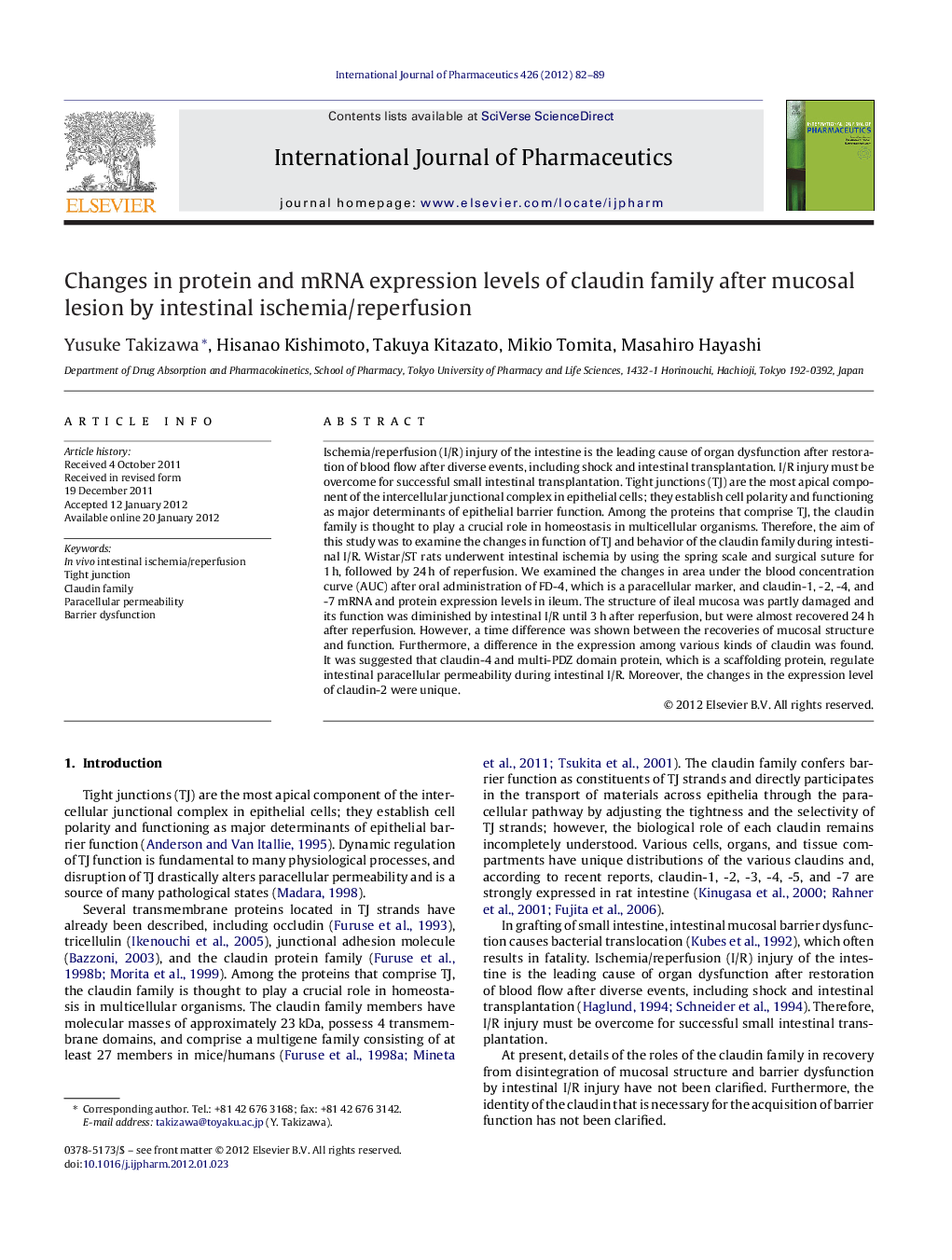| Article ID | Journal | Published Year | Pages | File Type |
|---|---|---|---|---|
| 5820882 | International Journal of Pharmaceutics | 2012 | 8 Pages |
Abstract
Ischemia/reperfusion (I/R) injury of the intestine is the leading cause of organ dysfunction after restoration of blood flow after diverse events, including shock and intestinal transplantation. I/R injury must be overcome for successful small intestinal transplantation. Tight junctions (TJ) are the most apical component of the intercellular junctional complex in epithelial cells; they establish cell polarity and functioning as major determinants of epithelial barrier function. Among the proteins that comprise TJ, the claudin family is thought to play a crucial role in homeostasis in multicellular organisms. Therefore, the aim of this study was to examine the changes in function of TJ and behavior of the claudin family during intestinal I/R. Wistar/ST rats underwent intestinal ischemia by using the spring scale and surgical suture for 1Â h, followed by 24Â h of reperfusion. We examined the changes in area under the blood concentration curve (AUC) after oral administration of FD-4, which is a paracellular marker, and claudin-1, -2, -4, and -7 mRNA and protein expression levels in ileum. The structure of ileal mucosa was partly damaged and its function was diminished by intestinal I/R until 3Â h after reperfusion, but were almost recovered 24Â h after reperfusion. However, a time difference was shown between the recoveries of mucosal structure and function. Furthermore, a difference in the expression among various kinds of claudin was found. It was suggested that claudin-4 and multi-PDZ domain protein, which is a scaffolding protein, regulate intestinal paracellular permeability during intestinal I/R. Moreover, the changes in the expression level of claudin-2 were unique.
Related Topics
Health Sciences
Pharmacology, Toxicology and Pharmaceutical Science
Pharmaceutical Science
Authors
Yusuke Takizawa, Hisanao Kishimoto, Takuya Kitazato, Mikio Tomita, Masahiro Hayashi,
